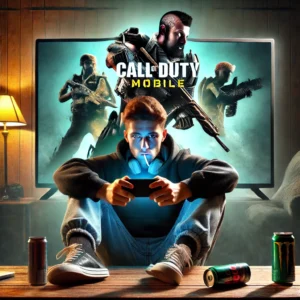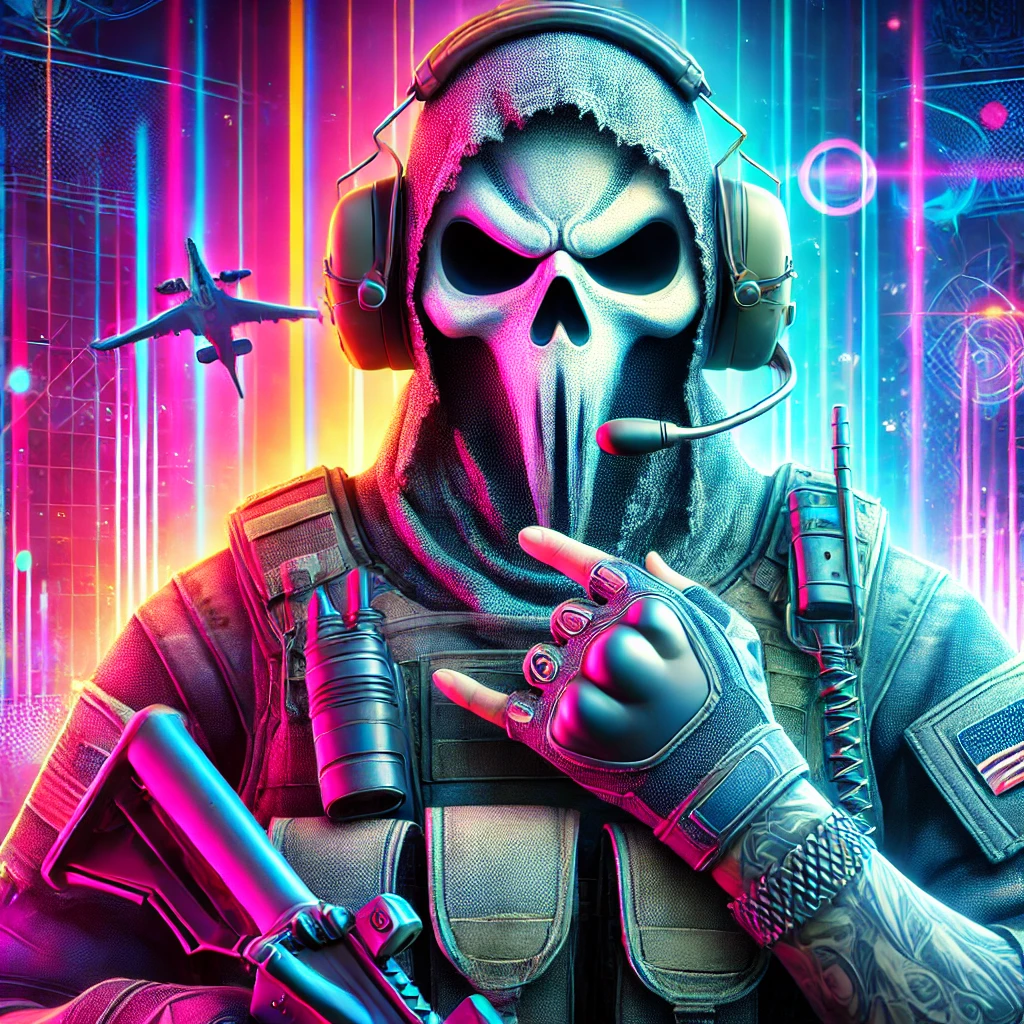Shocking Truth About Gaming Addiction: 7 Causes, Effects, and Treatment Options
What is Gaming Addiction?
Gaming addiction; also referred to as video game addiction or gaming disorder, is a condition wherein a person becomes so engrossed in playing video games that it already affects other important areas of life, including work, education, relationships, and physical health. While gaming can be a healthy and enjoyable activity when done in moderation, gaming addiction takes on the form of compulsive and uncontrollable behavior that has far-reaching consequences.
The WHO classifies this addiction as a mental health disorder characterized by a pattern of persistent or recurrent gaming behavior that takes precedence over other life priorities. In most cases, game addiction interferes with an individual’s daily life, health, and well-being.
The Changing Nature of Video Games and their Role in Society
From a pastime type of entertainment, video gaming has grown into more complex methods through which individuals can immerse themselves over the past few decades. With online multiplayer and even further into the worlds of virtual reality, rewards and systems for the player’s advancement and social contact are but some features allowing the player to hook into this form of amusement. Certainly, the aforementioned turns them from being simply games to usually the focal points in an individual’s life.
Free-to-play models, microtransactions, and social gaming have further added to addictive gaming. Introducing games with multiplayer facilities, and later with the growing community of eSports, players started building communities around the game and began to get much more heavily engaged in it online. These same advances that have made games more engaging also, unfortunately, fostered some individual’s pathological gaming behaviors.
What does gaming addiction look like?
Gaming addiction is characterized by a constellation of symptoms parallel to other substance use disorders in which a person has an overwhelming need to engage in a specific behavior. Some of the most important signs of gaming addiction include:
1. Preoccupation with Gaming
A person who is addicted to gaming thinks about the games when not playing them, planning their day around upcoming gaming sessions. Anxiety and unrest could be felt if one cannot play games, and even when doing other activities unrelated to playing games, the thought of playing preoccupies the mind.
2. Inability to Control Gaming Time
The inability to control the time spent gaming is one of the most surefire signs of addiction to gaming. This may include a player intending to play for a short time, yet finding themselves playing for several hours or even days without realizing the passage of time. The individual may also ignore other responsibilities in favor of more game time.
3. Neglect of Responsibilities
With gaming now the focus, the person begins to neglect work, school, family responsibilities, or personal hygiene. Neglect of responsibilities will eventually result in degraded performance at school or at work and can cause tension within the family, specifically members who are slighted or frustrated by the addiction.
4. Escalation of Play
In order to maintain a sense of euphoria or the feeling of victory, one would gradually prolong hours spent in the game, or intensify engagement in gaming behavior. Just as tolerance to various substances works wherein more and more is needed in order to have a pleasing enough effect, in this disorder as well.
5. Social Withdrawal
A gamer who is addicted to gaming starts isolating himself from real-world social interactions in order to spend more time in virtual worlds. The person is likely to become more reclusive and waste a lot of time playing video games, with family, friends, and loved ones suffering in the process. Addiction can create stress in friendships, marital issues, and family fights.
6. Physical and Mental Health Consequences
This, in turn, can affect an individual’s health, both physical and mental. Sedentary lifestyle and sitting for long periods of time will lead to bad posture, poor eyesight, and obesity. Moreover, the addiction to these games can disrupt sleep patterns by causing insomnia because gamers often work late into the night. The addiction can result in anxiety, depression, and irritability when the individual is not able to game.
7. Escape through Gaming
Most people who are addicted to gaming use video games to escape from the reality of problems like stress, loneliness, low self-esteem, or emotional pain. The virtual nature of the games offers a temporary escape from real-life problems, which becomes a very good coping mechanism for many.
Causes and Factors Contributing to Gaming Addiction
Gaming addiction is a complex condition that may be caused by biological, psychological, and social factors. These include:
1. Psychological Factors
Individuals with underlying mental health illnesses such as depression, anxiety, or ADHD may be more vulnerable to addiction to gaming because of the use of gaming as a way to avoid emotional hurt or to get away from real-world obligations. Individuals with low self-esteem or who feel socially alienated may also gravitate toward the sense of accomplishment and community that can come with online games.
2. Biological Factors
Research has shown that a gaming addiction can include neurological changes similar to substance use disorders. Success or progress in any game triggers neuro-transmitters related to reward or pleasure; thus, creating a self-reinforcing cycle where a player wants those feelings of rewards derived from his or her gaming.
3. Game Design and Reward Systems
Video games are designed to become addictive. Almost every game involves some sort of progression system, rewards, and challenges that players feel a sense of accomplishment. Multiplayer video games use ranking systems or loot boxes to lure players into playing more hours in order to be able to receive exclusive content and higher ranks.
4. Social Factors
With the rise of online multiplayer games and gaming communities, the social aspect of gaming has also increased. Many gamers make friends, teams, or even find a romantic partner in these virtual environments. The need to stay connected with others can lead to a compulsive desire to stay online, further exacerbating the addiction.
The Impact of Gaming Addiction
Addiction to gaming not only affects an individual but also the loved ones, communities, and their general well-being.
1. Physical Health Problems
Strain on the eyes and headaches due to long viewing.
Poor sitting postures leading to back and neck problems.
Obesity for reasons of comfort in sitting.
Sleeping late into the night to play games disrupts normal sleeping patterns.
2. Mental Health Consequences
Generally increased stress, anxiety, and depression if time to game is limited.
Isolation feelings due to the substitution of virtual relations for real ones.
Decreased cognitive functioning and poor concentration while studying or performing work.
3. Deteriorating Social Relations
Gaming addiction causes family conflicts and loss of friendship because the addict likes to sit with his console rather than spend time with the family and friends. Love relations are also disrupted as the partners feel cheated and neglected due to over-attachment of the person with games.
4. Impaired Academic and Work Performance
Excessive gaming may lead to poor academic performance, missed deadlines, or even lost opportunities in work and career. A video game addict might fail to meet deadlines at work or even lose a job due to not taking responsibilities seriously as a result of their addiction to gaming.
5. Financial Costs
Some games, especially free ones, utilize microtransactions to allure gamers into spending outrageous amounts on buying items. This may lead to financial constraints, debt, and even financial ruin since one may be blinded to the amount of money spent.
Treatment for Gaming Addiction
Beating gaming addiction requires time, patience, professional intervention, and self-awareness. The following are some of the most highly recommended treatment options for gaming addiction.
1. Cognitive Behavioral Therapy
Generally, cognitive-behavioral treatment is one of the most effective means of treatment against gaming addiction. Cognitive-behavioral therapy helps individuals identify and alter negative thinking and acting patterns regarding video games and develop healthier coping means.
2. Support Groups and Counseling
Support groups like Game Quitters offer a great avenue to share experiences and learn from others who have gone through similar struggles. Group therapy sessions and one-on-one counseling can also be effective in helping an individual confront the underlying emotional or psychological causes of his or her addiction.
3. Setting Boundaries
Of all the most vital steps to overcome game addiction, learning to put limits on time spent playing games is paramount. This may include daily limits on the amount of time spent playing games, frequent breaks, and scheduling other useful activities or hobbies to fill free time.
4. Making New Hobbies
Engaging in new hobbies and activities such as exercise, reading, or spending time with family helps shift focus away from gaming and reduces dependence.
5. Digital Detox
A digital detox is a break from everything to do with digital entertainment-from gaming, through social media, to even mobile phones. This keeps the person away and allows them to reassess life and begin to strike a balance in their lifestyle.
6. Medication
Under certain conditions, medication may be prescribed to help some other underlying mental states of depression or anxiety that could have predisposed one to this addiction to gaming.
Final Thoughts
Gaming addiction is a serious condition that can have far-reaching consequences on a person’s life, health, and relationships. The causes, signs, and effects of gaming addiction are important to understand in knowing when it becomes a problem and taking action. Though difficult to break free from the cycle of gaming addiction, professional help, support, and personal commitment can lead to recovery and a healthier, more balanced life.
If you feel that you or someone you know is struggling with gaming addiction, it is very important to look for help. With the appropriate treatment strategies, one can really overcome gaming addiction, and, in fact, it is altogether possible to once again enjoy it responsibly.
Read another article here







